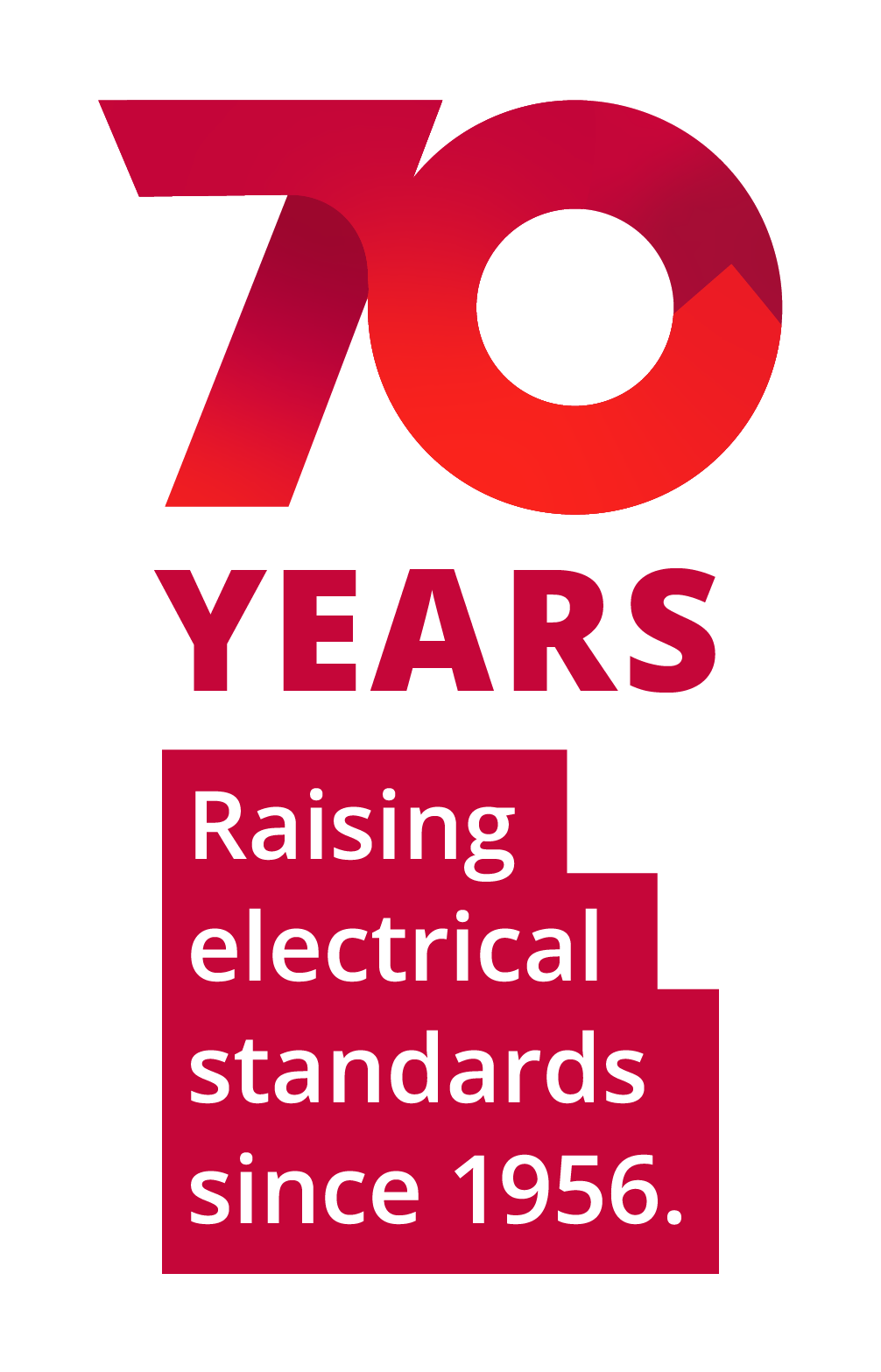New research from NICEIC underscores the vital role of apprenticeships in addressing skills needs and building a strong foundation for growth
New research commissioned by NICEIC has highlighted challenges across the electrotechnical industry surrounding technical skills, recruitment and those starting a career in the industry. Given existing research around the industry’s skills gap, this reinforces the pressing need to build a strong talent pipeline through apprenticeships and training to ensure the industry continues to grow and deliver the necessary transformation of UK infrastructure.
The research found over half (52%) of the electrical businesses that had recruited or attempted to recruit technical staff during 2024, found it to be a very difficult process. Moreover, of the firms not currently hiring apprentices, the admin involved (36%) as well as the difficulty of recruiting apprentices (17%) were cited as significant obstacles.
This points to concerns that the entire industry should stand ready to address, that the existing infrastructure is not doing enough to reduce labour market friction and connect talent with work. More also needs to be done to encourage fresh talent to enter the industry and support them through apprenticeships into technical roles.
Richard Orton, Chief Executive at NICEIC, commented: “Apprenticeships are integral to the electrotechnical industry. They are a key part of the industry’s heritage, how skills and technical knowledge have always been transferred from experienced professionals to new starters and looking forward, they will be crucial to closing the skills gap. When a business takes on an apprentice, they are not only making an investment in their business and that person’s future, but they are also helping to ensure the industry itself continues to grow.”
“This new research makes it clear that firms are looking to grow, take on new projects and invest in people, but the industrywide infrastructure is not always there to facilitate that. There needs to be a collective effort to put better structures in place, that help match electrical businesses with the talent they are clearly looking for. NICEIC is committed to helping the industry in this area and we are actively looking for ways to support NICEIC-certified businesses as they look to take on new apprentices.”
Nearly one in three firms surveyed are looking to achieve sustainable growth over the next three years and of those nearly half (44%) intend to take on a new apprentice in 2025. This points to a demand among electrical businesses to seize new opportunities and the recognition that one of the best ways to achieve this is by training new staff through apprenticeships. This is further evidenced by the finding that 67% of firms that did hire in 2024, took on at least one apprentice. Satisfaction with apprentices already employed also remains high, with employers giving their apprentices a net positive score of 3.93 out of 5.
While challenges do exist, including concerns about government funding (cited by 49% of firms) and the work-readiness of some apprentices (43%), underscoring the need for initiatives like the recently introduced T Levels, the overall feedback from employers is encouraging.
Andy Downing, Group Operations Director at NICEIC-certified business Playfords commented: "When we find someone with an enthusiasm to learn and the desire to be on the tools, working on site and learning from experienced electricians, we generally know we’ve found someone who will be with us for many years and go on to have a successful career in the industry. It can be an incredibly rewarding career and there are countless examples, including many at Playfords who started as apprentices and are now in senior roles.”
Demi Whitehead, who completed her apprenticeship and now works as an electrician at NICEIC-certified business, William Davies Homes, said: “I’d always suggest an apprenticeship to anyone thinking about their future. The skills I learnt set me up for my career and the thing I really enjoy about this industry is that there’s always more to learn as it continues to evolve.”
For those interested in an electrotechnical apprenticeship
For those interested in pursuing an electrotechnical apprenticeship, The Electrotechnical Skills Partnership (TESP) have a range of resources on training routes, apprenticeships and careers advice as well as labour market insights.
For current electrotechnical apprentices
NICEIC is committed to supporting electrotechnical apprentices’ training and welfare and has partnered with Electrical Industries Charity (EIC) on its free online learning portal, which offers mental health awareness training and resources for apprentices.
NICEIC’s Student Membership is available to support and complement the training and personal development of students undertaking technical competency training. It’s applicable for full-time and part-time students as well as those studying through an apprenticeship within the electrotechnical industry. Benefits include the free NICEIC Pocket Guides App, access to our customer portal containing free technical information, regular newsletters and bulletins, Connections magazine on a quarterly basis and access to The WIRE – NICEIC’s live and on-demand technical webinars.
The research found over half (52%) of the electrical businesses that had recruited or attempted to recruit technical staff during 2024, found it to be a very difficult process. Moreover, of the firms not currently hiring apprentices, the admin involved (36%) as well as the difficulty of recruiting apprentices (17%) were cited as significant obstacles.
This points to concerns that the entire industry should stand ready to address, that the existing infrastructure is not doing enough to reduce labour market friction and connect talent with work. More also needs to be done to encourage fresh talent to enter the industry and support them through apprenticeships into technical roles.
Richard Orton, Chief Executive at NICEIC, commented: “Apprenticeships are integral to the electrotechnical industry. They are a key part of the industry’s heritage, how skills and technical knowledge have always been transferred from experienced professionals to new starters and looking forward, they will be crucial to closing the skills gap. When a business takes on an apprentice, they are not only making an investment in their business and that person’s future, but they are also helping to ensure the industry itself continues to grow.”
“This new research makes it clear that firms are looking to grow, take on new projects and invest in people, but the industrywide infrastructure is not always there to facilitate that. There needs to be a collective effort to put better structures in place, that help match electrical businesses with the talent they are clearly looking for. NICEIC is committed to helping the industry in this area and we are actively looking for ways to support NICEIC-certified businesses as they look to take on new apprentices.”
Nearly one in three firms surveyed are looking to achieve sustainable growth over the next three years and of those nearly half (44%) intend to take on a new apprentice in 2025. This points to a demand among electrical businesses to seize new opportunities and the recognition that one of the best ways to achieve this is by training new staff through apprenticeships. This is further evidenced by the finding that 67% of firms that did hire in 2024, took on at least one apprentice. Satisfaction with apprentices already employed also remains high, with employers giving their apprentices a net positive score of 3.93 out of 5.
While challenges do exist, including concerns about government funding (cited by 49% of firms) and the work-readiness of some apprentices (43%), underscoring the need for initiatives like the recently introduced T Levels, the overall feedback from employers is encouraging.
Andy Downing, Group Operations Director at NICEIC-certified business Playfords commented: "When we find someone with an enthusiasm to learn and the desire to be on the tools, working on site and learning from experienced electricians, we generally know we’ve found someone who will be with us for many years and go on to have a successful career in the industry. It can be an incredibly rewarding career and there are countless examples, including many at Playfords who started as apprentices and are now in senior roles.”
Demi Whitehead, who completed her apprenticeship and now works as an electrician at NICEIC-certified business, William Davies Homes, said: “I’d always suggest an apprenticeship to anyone thinking about their future. The skills I learnt set me up for my career and the thing I really enjoy about this industry is that there’s always more to learn as it continues to evolve.”
For those interested in an electrotechnical apprenticeship
For those interested in pursuing an electrotechnical apprenticeship, The Electrotechnical Skills Partnership (TESP) have a range of resources on training routes, apprenticeships and careers advice as well as labour market insights.
For current electrotechnical apprentices
NICEIC is committed to supporting electrotechnical apprentices’ training and welfare and has partnered with Electrical Industries Charity (EIC) on its free online learning portal, which offers mental health awareness training and resources for apprentices.
NICEIC’s Student Membership is available to support and complement the training and personal development of students undertaking technical competency training. It’s applicable for full-time and part-time students as well as those studying through an apprenticeship within the electrotechnical industry. Benefits include the free NICEIC Pocket Guides App, access to our customer portal containing free technical information, regular newsletters and bulletins, Connections magazine on a quarterly basis and access to The WIRE – NICEIC’s live and on-demand technical webinars.





